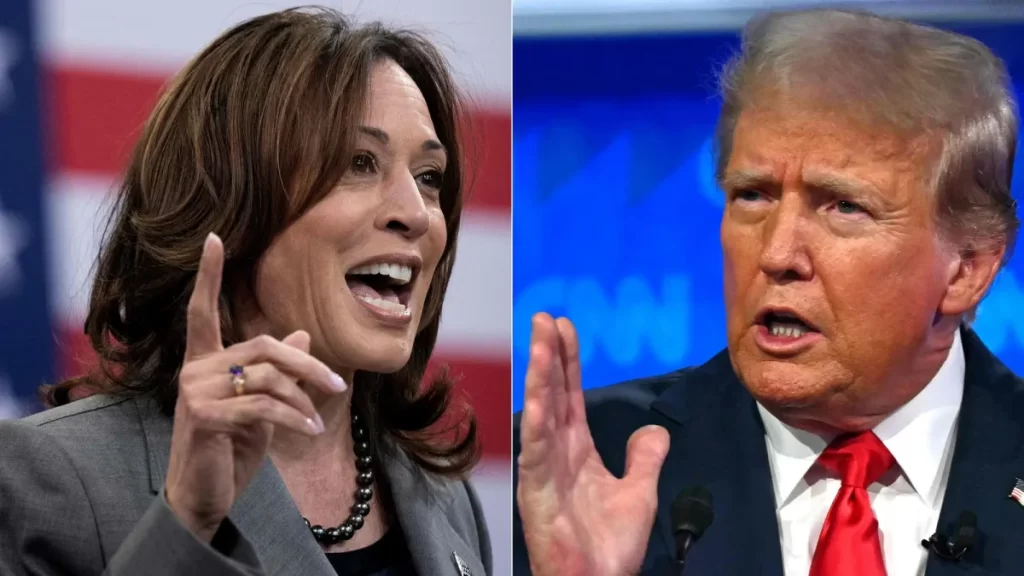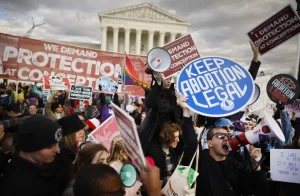
As the 2024 election approaches, the evolving conversation around gender roles is poised to deepen the partisan divide, adding an unpredictable layer to an already contentious race. Donald Trump’s recent statement to female voters declaring, “I will be your protector,” underscores his strategy to appeal to those favoring traditional family structures and gender norms. This demographic includes both men and a significant number of women who embrace conservative values.
However, political analysts from both parties caution that this approach could alienate a broader range of voters, particularly women who are increasingly supportive of social changes challenging traditional family dynamics. Younger, college-educated, and single women, in particular, are likely to resist the notion of needing protection from a man, especially one like Trump, who has faced serious allegations of sexual misconduct. Republican pollster Christine Matthews noted that this message could be perceived as “clumsy and dated,” especially coming from Trump.
Trump’s promise to protect women serves as a lens through which his campaign seeks to narrow the gender gap with Vice President Kamala Harris, who consistently leads among female voters in polls. At a recent rally, Trump asserted, “You will no longer be abandoned, lonely or scared… You will be protected,” framing his message around security and confidence. However, analysts like Daniel Cox from the American Enterprise Institute point out that many women are more concerned about broader anxieties regarding their rights and freedoms than just physical safety.
Cox highlights that the prevailing anxiety among women today stems not from fear of crime but from concerns about their autonomy and opportunities in society. This is compounded by the outrage many feel over the Supreme Court’s 2022 Dobbs decision, which overturned Roe v. Wade. Erin Cassese, a political scientist, notes that Trump’s insistence that women need not worry about reproductive rights could be perceived as dismissive of their genuine concerns.

Furthermore, Trump’s campaign rhetoric echoes the paternalistic language common in discussions of traditional gender roles, suggesting men are protectors while women should focus on domestic duties. Robert P. Jones, president of the Public Religion Research Institute, emphasizes that this perspective is rooted in hierarchical gender norms that many voters today reject. Polls reveal a stark divide: many Republicans, including a substantial portion of GOP women, remain resistant to reevaluating traditional gender roles in both home and workplace settings.
Recent surveys show a majority of Trump supporters believe barriers to women’s advancement have largely disappeared and that society benefits from prioritizing marriage and family. This sentiment reflects a broader cultural rift, as non-Republican voters tend to favor more progressive views on gender equality.
Trump’s attempts to brand himself as a protector align with a particular vision of masculinity that resonates with certain demographics but risks alienating others. While he may find traction among traditional, married women, particularly those in conservative circles, many younger and more progressive women view his messaging as control rather than protection.
Democratic pollster Celinda Lake notes that some older, working-class white women may respond to Trump’s framing of safety concerns linked to immigration. However, Lake argues that these women may prioritize economic issues over cultural ones, complicating the GOP’s overall appeal.
While Trump promotes himself as the embodiment of traditional masculinity, a significant portion of the electorate is increasingly comfortable with evolving gender dynamics. Polling indicates that a vast majority of women and men outside the Republican Party reject the idea that women should submit to their husbands or adhere to rigid gender roles.
The crucial question for both parties is whether Trump can gain traction with economically focused voters without alienating those who feel threatened by his views on gender and autonomy. As Trump leans into his “protector” narrative, many women, particularly those aware of their rights and freedoms, view him as a potential threat.
In this context, Kamala Harris is garnering significant support among demographics that recoil from Trump’s messaging. Polls indicate she leads Trump by substantial margins among younger women and college-educated voters, especially in battleground states. As Trump attempts to position himself as a defender of women, it is those who perceive him as a challenge to their rights who may ultimately safeguard the Democratic hold on the presidency.







